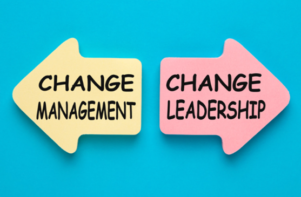Behavioral Leadership
The Appleton Greene Corporate Training Program (CTP) for Behavioral Leadership is provided by Ms. Berube, MBA, PCC Certified Learning Provider (CLP). Program Specifications: Monthly cost USD$2,500.00; Monthly Workshops 6 hours; Monthly Support 4 hours; Program Duration 12 months; Program orders subject to ongoing availability.

Personal Profile
Ms. Berube is a Certified Learning Provider (CLP) with Appleton Greene. She has over a decade of experience providing leadership coaching, consulting, and facilitation for C-suites, senior leaders and their teams from Fortune 500 and nonprofit organizations with a focus on revenue growth, operational performance, and leadership style. She has significant global experience in driving results while simplifying complexities, spurring performance breakthroughs, and guiding clients to communicate powerfully to influence and inspire others. Her recent clients include C-suite and VP-level executives in healthcare, finance, and tech industries.
In addition to her robust experience as an executive coach, Ms. Berube has over 15 years of corporate leadership experience in strategy and sales operations as an Executive Director, Market Head, and owner of $150M+ P&Ls and $5B capture teams, most recently at CVS Health. She is a regular guest lecturer to MBA programs and has been interviewed on numerous top podcasts for her expertise in leadership.
Ms. Berube earned an MBA from The College of William and Mary’s Mason School of Business (cum laude), a BA in English from George Mason University (cum laude), and holds multiple leadership and coaching certifications, including the ICF PCC and Duke’s Advanced Leadership Certificate.
Originally from the Northern Virginia area of the U.S., Erin splits her time between the Washington D.C. area and Southwest England. She has served as a Board Director for the International Coach Federation (ICF) and is an active volunteer and fundraiser for local nonprofits that support healthy communities
To request further information about Ms. Berube through Appleton Greene, please Click Here.
(CLP) Programs
Appleton Greene corporate training programs are all process-driven. They are used as vehicles to implement tangible business processes within clients’ organizations, together with training, support and facilitation during the use of these processes. Corporate training programs are therefore implemented over a sustainable period of time, that is to say, between 1 year (incorporating 12 monthly workshops), and 4 years (incorporating 48 monthly workshops). Your program information guide will specify how long each program takes to complete. Each monthly workshop takes 6 hours to implement and can be undertaken either on the client’s premises, an Appleton Greene serviced office, or online via the internet. This enables clients to implement each part of their business process, before moving onto the next stage of the program and enables employees to plan their study time around their current work commitments. The result is far greater program benefit, over a more sustainable period of time and a significantly improved return on investment.
Appleton Greene uses standard and bespoke corporate training programs as vessels to transfer business process improvement knowledge into the heart of our clients’ organizations. Each individual program focuses upon the implementation of a specific business process, which enables clients to easily quantify their return on investment. There are hundreds of established Appleton Greene corporate training products now available to clients within customer services, e-business, finance, globalization, human resources, information technology, legal, management, marketing and production. It does not matter whether a client’s employees are located within one office, or an unlimited number of international offices, we can still bring them together to learn and implement specific business processes collectively. Our approach to global localization enables us to provide clients with a truly international service with that all important personal touch. Appleton Greene corporate training programs can be provided virtually or locally and they are all unique in that they individually focus upon a specific business function. All (CLP) programs are implemented over a sustainable period of time, usually between 1-4 years, incorporating 12-48 monthly workshops and professional support is consistently provided during this time by qualified learning providers and where appropriate, by Accredited Consultants.
Executive summary
Behavioral Leadership
Many organizations face common leadership challenges that hinder growth, productivity, and employee engagement. Perhaps your team struggles with inconsistent leadership styles, lacks cohesion in decision-making, or is struggling to prepare for succession in key roles. You may find that despite investments in training, real behavior change is not taking root, and leaders are failing to fully translate learning into day-to-day actions. These pain points can lead to stagnation, a lack of innovation, and a workforce that feels disengaged, unsupported, and unaligned in key areas.

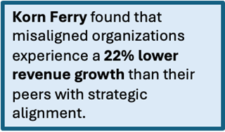
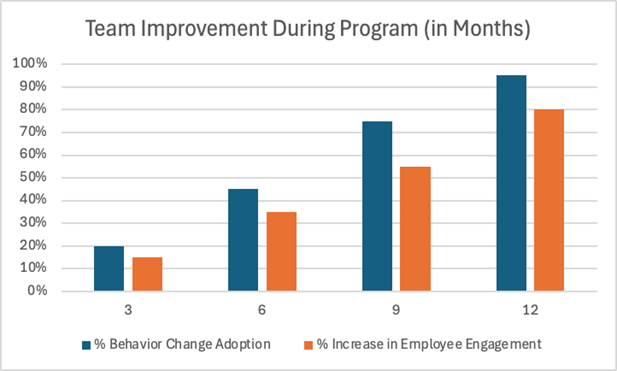
The above graph shows how focusing program objectives on behavior change improves employee engagement and productivity over time. This demonstrates how sustained leadership training with clear objectives significantly boosts employee engagement, as leaders adopt new behaviors that influence their teams.
This program is for leaders who are ready to make a lasting impact, elevate their performance, and ensure that leadership is a shared responsibility across your organization.
History
A critical component of modern leadership programs is their flexibility in addressing a diverse range of challenges. As businesses operate in increasingly complex and unpredictable environments, leadership training must be adaptable to equip leaders with the skills necessary to navigate uncertainty. Programs now often incorporate scenario-based learning, enabling leaders to engage with real-world challenges in a controlled environment. This approach helps develop critical thinking, resilience, and the ability to lead through ambiguity – skills that are indispensable in today’s fast-changing world.
Additionally, leadership programs are embracing the use of technology and data-driven insights. Digital tools, such as leadership assessments and 360-degree feedback, provide a clearer understanding of individual strengths and areas for growth. Many programs now integrate personalized coaching and mentoring, offering leaders the opportunity to partner with experts who guide them through the nuances of leadership in their specific context. The combination of technology, personalized feedback, and one-on-one support allows for a tailored experience that caters to the unique development needs of each leader.
Furthermore, these programs increasingly focus on emotional intelligence (EQ) as a core leadership capability. EQ, which includes self-awareness, empathy, and effective communication, has proven to be a key differentiator for successful leaders in modern organizations. As businesses place greater emphasis on diversity, equity, and inclusion (DEI), leaders must also develop cultural competence and the ability to foster inclusive environments. Leadership programs are now embedding these values into their curricula, ensuring that participants are prepared to lead diverse teams with empathy and cultural sensitivity.
The rise of remote and hybrid work models has also reshaped leadership development, prompting programs to address the unique challenges of leading distributed teams. In these environments, leaders must cultivate trust, ensure effective communication, and maintain engagement across virtual platforms. Many leadership programs now include modules dedicated to remote team management, equipping leaders with the strategies to maintain cohesion and productivity despite physical distance.
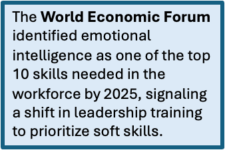
Future Outlook
The future of leadership development training programs is poised for significant evolution, driven by the rapidly changing nature of work, advancements in technology, and shifting expectations of leadership itself. As organizations grapple with increasingly complex challenges—such as digital transformation, globalization, and the need for sustainability—leadership development programs must adapt to prepare leaders for this evolving landscape.
One key trend shaping the future of leadership training is the increasing emphasis on adaptive leadership. Traditional leadership models, which focused on hierarchical decision-making and long-term strategic planning, are giving way to more flexible and responsive approaches. Adaptive leadership prepares leaders to navigate uncertainty, manage crises, and pivot quickly in response to changing conditions. This shift is particularly important as organizations face unpredictable external forces such as economic volatility, geopolitical tension, and rapid technological disruption. Future leadership development programs will need to focus on cultivating leaders who are comfortable with ambiguity and can lead in dynamic, fast-changing environments. The ability to foster innovation, experiment with new ideas, and guide teams through continuous transformation will become essential.
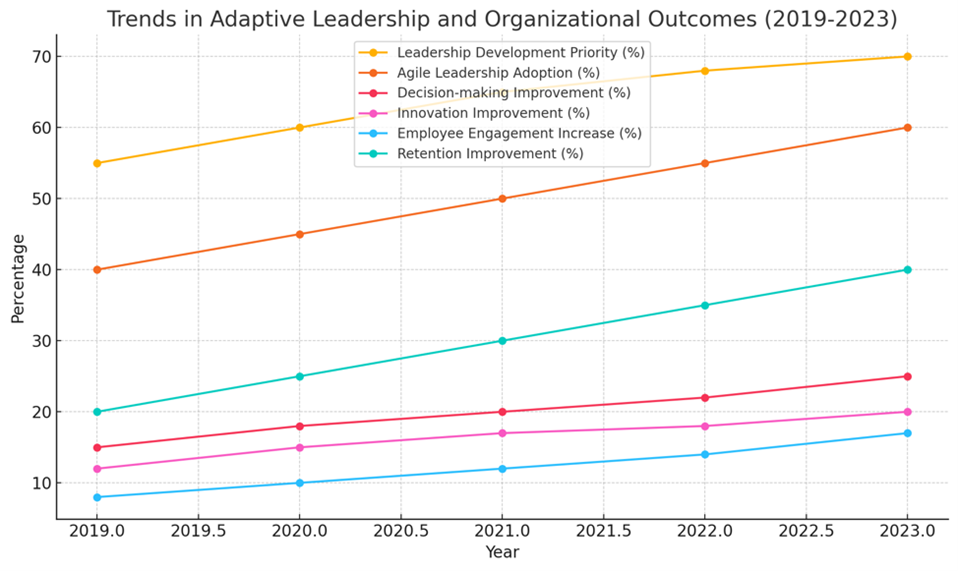
The above chart visualizes key trends related to adaptive leadership and organizational outcomes from 2019 to 2023. The upward trends highlight the increasing focus on adaptive leadership and its positive impact on various organizational metrics over time.
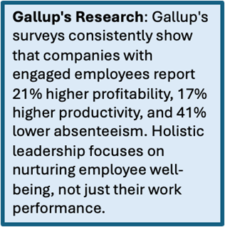
EQ and empathy are set to become even more central in future leadership development programs. As workforces become increasingly diverse and employees prioritize well-being, leaders must develop a deeper understanding of the human side of management. This includes fostering inclusive cultures, addressing mental health challenges, and promoting work-life balance. Future leaders will be expected to lead with empathy, actively listening to their teams, and creating environments where people feel valued and supported. Training programs will need to equip leaders with the skills to navigate sensitive interpersonal dynamics, manage conflict with compassion, and create psychologically safe spaces for innovation and growth. As employee expectations evolve, the ability to lead with emotional intelligence will distinguish truly effective leaders.
Additionally, sustainability and ethical leadership are emerging as critical competencies for future leaders. The growing awareness of climate change, social inequality, and corporate responsibility means that leaders must be able to balance profit with purpose. Future leadership development programs will increasingly focus on how leaders can integrate sustainability into their decision-making, ensuring that their organizations contribute to positive environmental and social outcomes. Ethical leadership, which encompasses transparency, integrity, and accountability, will also be prioritized, as consumers, investors, and employees demand greater corporate responsibility. Leadership programs will need to instill these values, ensuring that future leaders are not only skilled at driving performance but also committed to making ethical, long-term decisions that benefit society.
The future of leadership training will also see a shift toward holistic development, addressing both the professional and personal growth of leaders. Leaders of the future will be expected to model well-being, resilience, and balance, setting an example for their teams. Leadership development programs will likely include components focused on mindfulness, stress management, and personal growth, recognizing that leadership is not just about what happens in the workplace but also about how individuals show up in all areas of their lives. Leaders who take care of their mental and emotional health are better equipped to lead their teams through challenges and foster a positive organizational culture.
The future of leadership development training programs will be characterized by adaptability, technology integration, emotional intelligence, sustainability, and holistic development. As the challenges leaders face grow more complex, these programs will need to evolve to ensure leaders are prepared not just for the challenges of today, but for the uncertainties of tomorrow. Organizations that invest in these forward-looking leadership development programs will be better equipped to navigate future disruptions and lead their teams toward sustained success.

Case Study – Behavioral Leadership
Apple Inc., a global leader in technology and innovation, recognized the need to invest in leadership development to sustain its competitive edge and foster a culture of continuous improvement. In 2015, Apple launched a comprehensive behavioral leadership development program aimed at enhancing the skills of its top and mid-level managers across the globe.
Leadership Development Initiative
The program included:
1. Executive Coaching: Personalized coaching sessions for senior leaders to refine their strategic thinking and leadership styles.
2. Leadership Workshops: Interactive workshops focusing on innovation, collaboration, and decision-making.
3. Talent Development: Identifying and nurturing high-potential employees through mentorship and rotational assignments.
4. Continuous Learning: Online courses and seminars on the latest management and leadership practices.
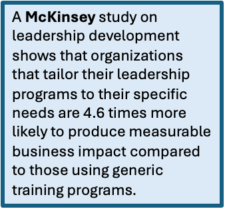
Apple invested approximately $150 million in this behavioral leadership development program over five years. This investment included costs for coaching, workshops, online courses, and employee time dedicated to development activities.
Results
The results of Apple’s investment in leadership development were significant, both in terms of financial returns and organizational improvements:
1. Increased Revenue: Improved leadership led to better decision-making and strategic execution, contributing to a 10% increase in annual revenue over five years. Given Apple’s revenue in 2015 was around $233 billion, this represented an additional $23.3 billion by 2020.
2. Enhanced Innovation: The program fostered a culture of innovation, resulting in the successful launch of new products and services, such as the Apple Watch and advancements in artificial intelligence and augmented reality.
3. Employee Retention: Leadership development contributed to higher employee satisfaction and retention rates. Apple’s employee turnover rate decreased by 15%, saving the company approximately $50 million annually in hiring and training costs.
4. Productivity Gains: Enhanced leadership skills improved team performance and productivity, leading to a 5% increase in overall workforce productivity. This boost translated to an estimated $5 billion in added value over five years.
Conclusion
Apple’s investment in behavioral leadership development not only reinforced its position as a market leader but also yielded substantial financial benefits. The $150 million investment generated a return of over $28 billion, demonstrating the significant impact of effective leadership on a company’s bottom line and long-term success.
Curriculum
Behavioral Leadership – Part 1- Year 1
- Part 1 Month 1 Prioritizing Workflows
- Part 1 Month 2 Leadership Communication
- Part 1 Month 3 Inspiring Vision
- Part 1 Month 4 Influence & Advocacy
- Part 1 Month 5 Feedback Strategy
- Part 1 Month 6 Inspiring Others
- Part 1 Month 7 Change Leadership
- Part 1 Month 8 Decision Strategy
- Part 1 Month 9 Performance Improvement
- Part 1 Month 10 Time Management
- Part 1 Month 11 Strengthening Teams
- Part 1 Month 12 Symbolic Leadership
Program Objectives
The following list represents the Key Program Objectives (KPO) for the Appleton Greene Behavioral Leadership corporate training program.
Behavioral Leadership – Part 1- Year 1
The overarching objectives of this 12-month leadership development program are to:
1. Equip your team with a robust set of leadership skills and routines that they can apply in their everyday work. The goal is for these skills and behaviors to become ingrained habits and a natural part of each leader’s style.
2. Foster a culture of ongoing learning, reflection, and dialogue around leadership. By dedicating time each month to explore and discuss these topics, participants will develop a shared language and understanding of what great leadership looks like in your organization.
3. Drive real behavior change and performance improvement. The program is designed to translate learning into action. Each month, leaders will be challenged to practice and apply specific skills, creating a rhythm of continuous improvement.
4. Enhance your organization’s leadership bench strength and succession pipeline. By developing your leaders in this way, you’re preparing them for larger roles and responsibilities in the future.
Ultimately, the aim is to embed leadership skills, behaviors and principles deep into the DNA of program participants, so that they become the way we lead in all aspects of life. It’s about creating sustainable, long-term impact.
Program Objectives – Workshop #1 – Prioritizing Workflows
This workshop shifts the traditional leadership focus from theoretical psychology to actionable behaviors that leaders can implement to prioritize effectively and manage workflows for maximum impact. Rather than just understanding leadership traits, participants will explore how specific, consistent behaviors drive productivity and outcomes. By concentrating on behavioral leadership, leaders can make deliberate choices to streamline tasks, improve their prioritization, and ultimately increase business results.
In this interactive session, participants will learn to:
• Identify psychological influences on default behaviors: Understand how psychological biases shape responses, especially in high-stress situations, and how these might impact prioritization and effectiveness.
• Build sustainable routines over quick fixes: Emphasize creating long-term behavioral routines that align with leadership and business goals rather than short-term tactics.
• Implement behaviors that foster results and trust: Focus on practical actions that improve both business results and team followership.
By the end, participants will be equipped to align daily actions with strategic priorities, fostering positive results and strong team dynamics.

Program Objectives – Workshop #2 – Leadership Communication
This workshop explores the powerful link between leadership effectiveness and communication, with research showing an impressive correlation of .86. Leadership credibility is rooted in communication—how leaders engage with their teams shapes trust, rapport, and motivation, all vital to their success.
Participants will focus on four key communication skills:
1. Relational Style: How leaders “show up” through presence and emotional intelligence impacts rapport and authenticity.
2. Content Selection: Leaders must choose topics that resonate, aligning with both strategic goals and team needs.
3. Message Delivery: Effective leaders convey messages clearly and in ways that resonate emotionally and intellectually.
4. Response Management: Listening actively and engaging thoughtfully helps build trust and encourages open dialogue.
Mastering these areas enhances leaders’ communication effectiveness, amplifying their influence and credibility.

Program Objectives – Workshop #3 – Inspiring Vision
In this session, we will explore the process of crafting a bespoke vision tailored specifically to your team or organization. Participants will:
1. Craft an Inspiring Vision: Develop a customized, aspirational, yet attainable vision that reflects your team or organization’s highest potential and provides clear direction.
2. Understand Vision Elements: Learn the importance of structure, language, and storytelling in shaping a vision that resonates and aligns your team.
3. Learn Effective Messaging Techniques: Gain insights into strategic messaging, using context, credible language, and narrative techniques to convey the vision in a way that motivates and engages your audience.
4. Create a Communication Strategy: Walk away with actionable steps to communicate the vision clearly, fostering a unified purpose and inspiring your team towards success.
This approach will ensure participants leave with practical tools for vision creation and communication.

Program Objectives – Workshop #4 – Influence & Advocacy
In this workshop, participants will learn how to enhance their leadership impact by climbing the “Power Ladder,” a model encompassing Leadership Presence, Influence, and Advocacy.
1. Leadership Presence: Understand how to inspire, command respect, and instill confidence through authenticity and connection.
2. Influence: Learn techniques to align others with shared goals through effective communication and relationship building.
3. Advocacy: Discover how to champion team needs with boldness and strategic thinking, representing interests in challenging environments.
The workshop will also delve into three pillars of influence:
• The Messenger: Develop a compelling personal style to inspire trust.
• Relationships: Build meaningful, long-term connections that foster influence.
• The Message: Craft clear, relevant, and persuasive communication to resonate with audiences.
Program Objectives – Workshop #5 – Feedback Strategy
In this workshop, participants will explore feedback as a transformative tool that drives individual and organizational growth. Effective feedback is not just about correcting mistakes but is a way to build team members’ skills, confidence, and potential. World-class leaders know how to balance developmental conversations with timely, constructive feedback, making it a core element of leadership.
Objectives:
1. Understand Feedback Essentials – Learn the importance of feedback that is both relevant and actionable, ensuring it aligns with the recipient’s role and drives meaningful improvement.
2. Foster Receptivity – Discover techniques to create a trusting environment where team members feel safe and motivated to receive feedback.
3. Develop Practical Skills – Acquire actionable feedback strategies that enhance engagement and empower individuals to take constructive actions, contributing to overall team success.
This workshop equips leaders to make feedback a powerful, positive force within their teams.
Program Objectives – Workshop #6 – Inspiring Others
This workshop examines the distinction between motivation and inspiration. While motivation relies on external rewards or tailored incentives, it often leads to short-lived results and can exhaust those providing it. In contrast, inspiration taps into intrinsic values, fostering long-term drive by connecting individuals with a sense of purpose. This session will explore how relying solely on motivation can be draining and introduce a universal concept of inspiration that encourages people to excel sustainably.
Objectives:
• Understand the differences between motivation and inspiration.
• Recognize the limitations of motivation as a sustainable strategy.
• Learn to leverage inspiration to foster deeper, longer-lasting engagement.
• Develop actionable strategies to encourage and inspire people in various roles, whether leading a team, raising children, or serving clients.
Program Objectives – Workshop #7 – Change Leadership
This workshop is designed to enhance the success rate of organizational change initiatives by addressing the critical role of effective communication. Change efforts often fail due to poor communication and alignment, which this workshop tackles by providing frameworks, tools, and strategies for leading change confidently.
Objectives:
• Rethink change as a continuous “wave” rather than a linear process.
• Map and track the organizational landscape to better understand complex environments.
• Manage stakeholders and build social capital to foster trust and engagement.
• Craft compelling narratives that connect and align diverse audiences with the change vision.
• Gain strategic insights and practical tools for confidently steering organizations through transformation.
By the end of the workshop, participants will be equipped to lead sustainable, well-communicated, and effectively managed change initiatives.
Program Objectives – Workshop #8 – Decision Strategy
This workshop equips leaders with structured strategies to enhance decision-making processes. Participants will learn to gather and analyze critical information effectively, identify valuable data, and recognize potential biases that can affect judgment. Emphasis will be placed on engaging others in group decisions while maintaining decisive leadership.
Objectives:
• Develop habits to filter and evaluate information objectively.
• Explore techniques to balance team input with decisive action.
• Learn to navigate decision-making challenges and anticipate obstacles.
• Build routines for ongoing, quality decision-making.
By the end of this session, participants will gain a toolkit of strategies for making sound decisions under pressure, fostering a culture of thoughtful, effective decision-making.
Program Objectives – Workshop #9 – Performance Improvement
This leadership workshop empowers participants to enhance team performance through effective feedback, strategic talent recruitment, and strong decision-making. Participants will learn to:
• Deliver constructive feedback that motivates without complacency
• Address performance challenges without undermining team morale
• Recruit the right talent for sustainable success
Additionally, the workshop fosters skills to encourage calculated risk-taking, fostering an environment where innovation thrives. Attendees will leave equipped with actionable strategies to recruit effectively, build decision-making confidence, and drive peak team performance while building lasting, trust-based relationships.

Program Objectives – Workshop #10 – Time Management
Excellence in leadership goes beyond hard work—effective time management is equally essential. While the principles of time management are widely known, implementing them remains a challenge for even the most seasoned leaders. This workshop will dive into the connection between a leader’s values and time choices, showing how these influence both personal and professional success.
Objectives:
• Understand the impact of time management on leadership: Explore how poor time management affects credibility, relationships, and business goals.
• Identify common time management pitfalls: Recognize the typical challenges leaders face in prioritizing and staying focused.
• Learn techniques for effective prioritization and delegation: Discover how high-performing leaders manage their schedules to balance work and personal life.
• Practice sustainable time management strategies: Gain tools to limit distractions, track team progress, and maintain a high level of performance.
By the end of this workshop, you’ll be equipped with strategies to master time management, enhance productivity, and lead with greater impact and integrity.
Program Objectives – Workshop #11 – Strengthening Teams
In high-performing teams, success is not just about individual talent—it’s about how well the team works together. This workshop will explore routines and practices essential for building a culture of trust, respect, and open communication within teams. Participants will learn how to establish habits that foster psychological safety, allowing all members to contribute their ideas and insights openly.
We will cover how to create a value-driven team culture, where everyone leads from within, working toward a shared purpose. Leadership isn’t confined to titles; rather, each person plays a key role in the team’s success. Through embedding core values like accountability and respect, participants will see how these principles enhance collaboration, innovation, and resilience.
Workshop Objectives:
• Develop habits that build trust and foster respect within teams.
• Create an environment of psychological safety for open and candid communication.
• Establish a value-driven team culture that empowers every member to lead from within.
• Embed core values such as trust, respect, and accountability to support team cohesion.
• Equip participants with actionable strategies for enhancing collaboration, leadership, and resilience within teams.
By the end, participants will have practical strategies to strengthen teamwork, foster leadership across all levels, and build a supportive environment for sustained success.
Program Objectives – Workshop #12 – Symbolic Leadership
Leadership visibility is a powerful, symbolic tool that shapes perception and culture within organizations. As leaders progress, their actions and presence hold increasing influence. This interactive workshop explores how leaders can consciously use symbolism to amplify their messages and align their values with their actions.
Workshop Objectives:
• Understand the impact of symbolism in leadership and how it shapes organizational culture.
• Explore key concepts, including “symbol volume levels” and natural symbol clusters.
• Learn to use the Symbol Scan Graph to assess the significance of symbols based on context and timing.
• Recognize the varying influence of different symbols and their roles in communication.
• Analyze real-world examples to see how symbols communicate meaning within organizations.
• Identify opportunities to create and leverage symbols intentionally to drive alignment and inspiration.
• Practice applying symbolic actions to reinforce a clear, consistent leadership message.
Ideal for leaders aiming to enhance their presence, this workshop equips participants with tools to make impactful, purposeful decisions that resonate with teams and stakeholders.
Methodology
Behavioral Leadership
The proven step by step foundation building approach used in this 12-month behavioral leadership program allows participants to embed leadership skills, behaviors and principles deep into their DNA, so that they become the way we lead in all aspects of life. It’s about creating sustainable, long-term impact that improves performance of individuals and teams.
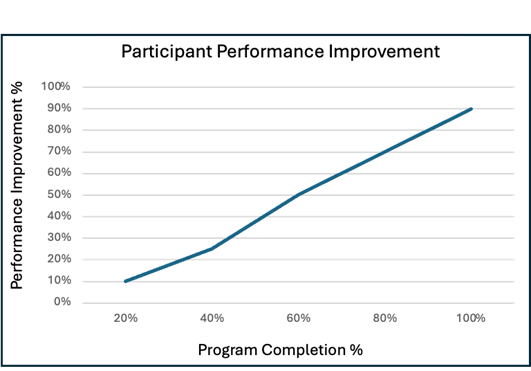
Leveraging principles from Kaizen methodology, participants will dedicate time each month to an interactive leadership workshop that focuses on incremental progress in a specific leadership skill or routine that builds upon the teachings from previous months. The workshops, led by a facilitator, will include group dialogue discussion, peer-to-peer learning through role-playing, and case studies relevant to their work. In addition, there will be time built into each session for self-reflection on how the leadership principles can apply to their everyday work and home lives.
At the end of each workshop, participants will be challenged to apply what they’ve learned. This could involve taking on a stretch assignment, leading a new project, or testing a new leadership behavior with their team. In addition, participants will be encouraged to:
• Integrate Learning into Real Work: Apply the skills being taught to their current job responsibilities. This helps create immediate relevance and ownership.
• Create an Accountability Partner System: Pair participants with a partner who holds them accountable for practicing the new skills throughout the month.
Also at the end of each workshop, participants will be provided a monthly toolkit to support practice between sessions and to ensure the knowledge gained is not easily forgotten.
By following these processes, participants will be able to implement the leadership development program effectively, ensuring long-term impact and fostering a culture of strong leadership across their organizations.
Industries
This service is primarily available to the following industry sectors:

Technology
The technology industry has experienced explosive growth and transformation in a short period, with no signs of slowing down. While the sector is known for its innovation and start-up culture, it remains dominated by a few powerful players.
As of 2023, the “Big Five” tech giants continue to lead the industry:
1. Apple: $394.3 billion revenue – 164,000 employees.
2. Samsung Electronics: $244.4 billion revenue – Over 287,000 employees.
3. Alphabet (Google): $279.8 billion revenue – 190,234 employees.
4. Foxconn: $206.8 billion revenue – Over 1 million employees.
5. Microsoft: $211.9 billion revenue – 221,000 employees.
Other prominent global tech companies, including Huawei, Dell Technologies, Meta, Sony, Intel, IBM, and Tencent, also play key roles in shaping the industry’s future. These companies, and the technology they develop, are vital to improving productivity, increasing connectivity, and transforming how we live and work.
Behavioral Leadership and the Role of Technology
In today’s business world, technology has moved beyond being just a tool—it is now a critical driver of success. The pandemic underscored the need for technology, pushing businesses to accelerate digital transformation, making it a key part of every business strategy. However, merely adopting technology is not enough. Effective leadership, grounded in behavior, is essential to ensure technology’s potential is fully realized.
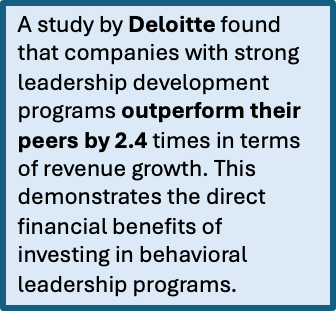
Behavioral leadership’s focus is to understand and influence the behaviors of individuals and teams within organizations. In the context of the technology industry, leaders must create environments where their teams can embrace new technologies and adapt to constant change. This leadership style emphasizes collaboration, emotional intelligence, and adaptability—traits that are crucial when guiding organizations through technological disruption.
Technology as a Catalyst for Organizational Change
Technology has become an enabler for innovation, but it’s behavioral leadership that drives successful change. As organizations across industries—from healthcare to engineering—adopt new technologies to remain competitive, the challenge isn’t just technical implementation; it’s helping people adapt to new ways of working.
Behavioral leadership fosters a culture where employees feel empowered to explore and use technology to its fullest potential. Leaders in technology companies play a critical role in setting the tone, encouraging continuous learning, and providing the psychological safety necessary for teams to experiment with new tools and solutions. Leaders who model adaptability and curiosity help create a workplace where technological advancements can be seamlessly integrated.
Addressing the Diversity Gap Through Behavioral Leadership
One of the persistent challenges in the tech industry is its lack of diversity. As of 2023, women represent only about 28% of the U.S. tech workforce. This gap isn’t just a missed opportunity for diversity—it also hinders innovation. Behavioral leadership can play a crucial role in addressing this issue.
Inclusive leaders who understand the power of diverse perspectives can create environments that are not only welcoming but also highly productive. Behavioral leadership encourages leaders to model behaviors that foster inclusivity, such as active listening, empathy, and mentorship. By promoting these behaviors, leaders can bridge the gender gap and ensure that teams benefit from a range of viewpoints and experiences. This, in turn, drives better decision-making and more innovative solutions.
Preparing for the Fourth Industrial Revolution
As we enter the Fourth Industrial Revolution, with emerging technologies like AI, robotics, and blockchain reshaping industries, behavioral leadership will be more critical than ever. The World Economic Forum predicts that by 2025, nearly one-third of the most critical job skills will involve technologies that many organizations do not yet fully understand. This rapidly changing landscape requires leaders who can guide their teams through uncertainty and equip them with the skills needed to adapt to new challenges.
Behavioral leaders understand that the key to navigating this revolution lies not just in adopting technology but in cultivating the right mindset and behaviors within their teams. This includes encouraging curiosity, fostering continuous learning, and promoting resilience in the face of change. By focusing on these behavioral elements, leaders can help their organizations stay agile and competitive in a tech-driven future.
Technology and Behavioral Leadership as Competitive Differentiators
In today’s business environment, technology and leadership are not separate forces—they are deeply intertwined. Behavioral leadership enhances the impact of technology by ensuring that teams are engaged, motivated, and equipped to innovate. Leaders who focus on behavior can create a competitive advantage by fostering environments where technological adoption is not only smooth but also embraced.
As businesses continue to digitize and modernize, behavioral leadership will be the key to unlocking the full potential of technology. By guiding teams through technological shifts, helping them adapt to new processes, and promoting a culture of inclusivity and continuous learning, leaders can ensure their organizations thrive in an increasingly complex and connected world.
Healthcare
The healthcare industry has witnessed significant growth and transformation over recent years, with no signs of slowing down. While known for its dedication to patient care and innovation, the industry is still dominated by a few powerful players in both healthcare provision and pharmaceutical development.
As of 2023, several key healthcare organizations and companies continue to lead the industry:
1. UnitedHealth Group: $324.2 billion revenue – 400,000 employees.
2. CVS Health: $322.5 billion revenue – Over 300,000 employees.
3. Cigna: $180.5 billion revenue – Over 70,000 employees.
4. Pfizer: $100.3 billion revenue – 83,000 employees.
5. Roche: $68.7 billion revenue – 103,000 employees.
Other prominent companies such as Johnson & Johnson, Anthem, Abbott, Merck, and GSK also play essential roles in shaping the future of healthcare. These organizations, along with the advances they make in medical technology, pharmaceuticals, and patient care delivery, are crucial to improving global health outcomes and patient access to quality care.
Behavioral Leadership and the Role of Technology in Healthcare
In today’s healthcare landscape, technology is more than just a tool—it’s become a crucial enabler of better patient outcomes and operational efficiency. The COVID-19 pandemic highlighted the urgent need for healthcare systems to accelerate digital transformation, making technology a core part of strategic planning. However, simply implementing technological solutions is not enough. Effective leadership, especially behavioral leadership, is essential for unlocking the full potential of these innovations.
In this industry, leaders must foster environments where teams can confidently embrace new technologies such as telemedicine, AI diagnostics, and robotic surgeries. This leadership style emphasizes collaboration, emotional intelligence, and adaptability—qualities that are vital for successfully navigating the constant evolution of healthcare technology.
Healthcare Technology as a Catalyst for Organizational Change
While healthcare technology can drive innovation, it is behavioral leadership that ensures change is effectively implemented. As hospitals and healthcare providers adopt new technologies to remain competitive and meet patient needs, the challenge is not just technical—it is helping professionals adapt to new ways of delivering care.
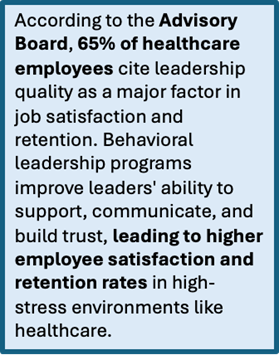
Behavioral leadership creates a culture where healthcare professionals feel empowered to utilize technology to its full potential. Leaders in the healthcare sector play an essential role in setting the tone for continuous learning and experimentation. By providing the psychological safety for teams to explore new tools and workflows, healthcare leaders help facilitate smooth transitions to technology-driven practices and solutions.
Addressing the Workforce and Gender Gap Through Behavioral Leadership
One of the persistent challenges in healthcare, particularly in leadership roles, is the gender gap. While women make up a significant portion of healthcare workers globally, there remains a disparity in leadership positions. As of 2023, only 30% of healthcare executive roles are held by women, despite their dominance in frontline roles.
Behavioral leadership can play a crucial role in addressing this issue. Inclusive leaders who value diverse perspectives can create environments that are not only more equitable but also more innovative. By fostering behaviors such as active listening, empathy, and mentorship, healthcare leaders can bridge the gender gap, ensure that diverse viewpoints are considered, and drive better decision-making and patient outcomes.
Preparing for the Future of Healthcare
The future of healthcare will be shaped by emerging technologies such as AI-driven diagnostics, precision medicine, and virtual care. According to the World Health Organization, by 2030, digital health skills will be essential for nearly half of healthcare roles. This shift requires leaders who can help their teams navigate uncertainty and embrace the skills necessary for adapting to future challenges.
Behavioral leaders understand that successfully adopting these innovations involves cultivating the right mindset and behaviors within their teams. By encouraging continuous learning, fostering resilience, and promoting adaptability, healthcare leaders can ensure their organizations remain competitive and responsive to patients’ evolving needs.
Technology and Behavioral Leadership as Competitive Differentiators in Healthcare
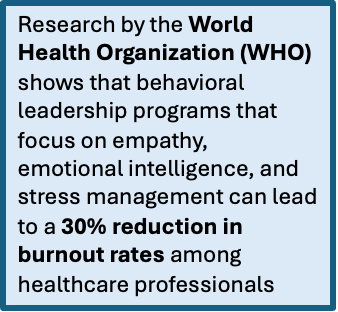
In the healthcare sector, technology and leadership are increasingly interconnected. Behavioral leadership enhances the benefits of technology by creating environments where healthcare professionals are empowered, motivated, and equipped to innovate. Leaders who focus on behavior create a competitive advantage by fostering inclusive and collaborative workplaces, where technological advancements are fully embraced.
As the industry continues to evolve and modernize, behavioral leadership will be key to unlocking the full potential of healthcare technology. By guiding their teams through the complexities of digital transformation and encouraging continuous learning, leaders can ensure their organizations thrive in a rapidly changing healthcare landscape.
Retail
The retail industry has undergone dramatic shifts in recent years, primarily driven by the rise of e-commerce, evolving consumer expectations, and rapid technological advancements. Once dominated by brick-and-mortar stores, the landscape has diversified, with online and omnichannel strategies becoming central to business models. The COVID-19 pandemic further accelerated these changes, pushing retailers to adapt swiftly to new ways of engaging with customers.
In 2023, some of the major players in the global retail sector include:
1. Walmart: $611.3 billion revenue – 2.3 million employees.
2. Amazon: $514 billion revenue – Over 1.5 million employees.
3. Costco: $239.6 billion revenue – 304,000 employees.
4. Alibaba: $126 billion revenue – 250,000 employees.
5. The Home Depot: $157.4 billion revenue – 490,600 employees.
These companies, alongside other key players such as Target, JD.com, and Tesco, are reshaping the future of retail through a combination of technological innovation, data-driven strategies, and evolving customer experience models. Whether it’s through seamless checkout solutions, personalized marketing, or enhanced supply chain logistics, retailers are leveraging technology to meet the increasing demands of modern shoppers.
Technology and Behavioral Leadership in Retail:
As technology revolutionizes retail, leadership plays a pivotal role in how successfully companies adapt to these changes. Behavioral leadership, which focuses on influencing and understanding individual and team dynamics, has become a critical asset for retail leaders navigating this ever-changing environment.
The shift to digital-first strategies has placed new demands on retail workers, from adapting to automated processes in warehouses to providing enhanced customer service online. Leaders in the retail industry must be adept at fostering adaptability and innovation across all levels of the organization. Behavioral leadership encourages traits such as empathy, emotional intelligence, and collaboration—essential qualities for leading teams through these transitions.
While technology can streamline operations, it’s the human element that ensures technology is used to its fullest potential. Leaders who prioritize behavioral approaches can cultivate environments where employees feel supported in adopting new technologies, whether it’s AI-powered inventory management systems or virtual fitting rooms for customers.
Retail Transformation and the Role of Leadership:
The integration of advanced technology into retail operations is no longer optional; it’s a necessity for companies looking to stay competitive. However, technological implementation is just one piece of the puzzle. Leadership, especially that rooted in behavior, is what drives successful transformation within organizations.
In the retail industry, leaders must balance technological investments with the human aspect of business transformation. Behavioral leadership supports this by promoting continuous learning and psychological safety—allowing teams to experiment with and fully embrace new tools and solutions. This balance is critical as retailers increasingly rely on data analytics, artificial intelligence, and other emerging technologies to optimize customer experiences, streamline operations, and drive growth.
For example, leaders must guide their teams in using customer data ethically and effectively to improve personalization without overstepping privacy boundaries. Similarly, implementing new inventory management systems or contactless payment solutions requires leaders who can inspire confidence and reduce resistance to change.
Challenges in Workforce Diversity and Leadership in Retail:
The retail industry is one of the largest global employers, yet it continues to face challenges in workforce diversity, particularly in leadership roles. While women and underrepresented minorities make up a significant portion of retail employees, they are often underrepresented in executive and managerial positions.
Behavioral leadership can help bridge this gap. Inclusive leaders who foster diverse perspectives drive not only equitable workplaces but also better business outcomes. Research shows that diverse teams are more innovative and make better decisions, which is critical in a rapidly evolving industry like retail. Leaders who practice behaviors such as empathy, active listening, and mentorship can create more inclusive environments where all employees feel valued and motivated.
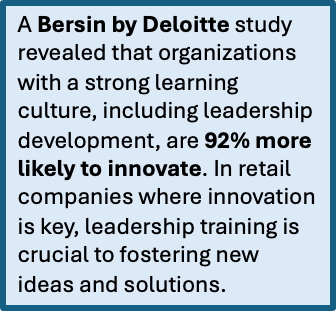
Promoting diversity in leadership roles in retail can also lead to more innovative customer engagement strategies and better alignment with diverse consumer bases, enhancing overall competitiveness.
Preparing for Retail’s Future:
The retail sector is preparing for a future where technology plays an even more central role, with artificial intelligence, automation, and augmented reality (AR) leading the charge. According to a recent report, by 2030, nearly half of all customer interactions in retail could be automated. While technology will handle much of the routine and transactional work, leaders will need to focus on fostering human creativity and strategic thinking.
Behavioral leadership will be crucial in this context, helping to create a culture of curiosity, continuous learning, and resilience in the face of constant change. Leaders who encourage their teams to adapt to technological advancements—while maintaining the human connection with customers—will be best positioned to succeed.
Furthermore, as retail companies expand into new digital territories like the metaverse or blockchain-based transactions, the need for adaptable, emotionally intelligent leaders will only grow. These leaders will guide their organizations through the uncertainty of new frontiers, ensuring that they remain agile and customer-centric.
The Intersection of Technology, Retail, and Leadership:
Technology alone cannot solve the complex challenges facing the retail industry—it requires visionary leadership to truly unlock its potential. Behavioral leadership offers a competitive edge, as leaders who focus on understanding and influencing their teams’ behaviors create environments where innovation flourishes.
Retail companies that embrace both technology and strong leadership will be able to meet evolving consumer demands, manage complex supply chains, and deliver exceptional customer experiences. As the industry continues to modernize, leaders who encourage continuous learning, inclusivity, and emotional intelligence will help their organizations thrive in the dynamic world of retail.
Banking
The banking and financial services industry encompasses a wide array of economic services provided by entities such as banks, credit card companies, credit unions, insurance companies, accountancy firms, consumer finance firms, stock brokerage firms, investment funds, and some government-sponsored enterprises.
The Gramm-Leach-Bliley Act, passed in the late 1990s, spurred a new business model within the financial services industry in the United States. This legislation allowed for the merger of financial institutions, enabling banks to either acquire insurance companies or investment banks while maintaining their individual brands or to incorporate insurance and brokerage services within their own structure, selling additional products to existing clients. These changes, along with ongoing technological advancements, have transformed the sector, making it essential for institutions to adopt innovative strategies to remain competitive.
As the landscape shifts, behavioral leadership has become a key focus for banks and financial institutions. With increasing consumer demands for easy access to services and heightened expectations for efficiency, institutions must not only implement cutting-edge digital solutions but also foster adaptive leadership that is responsive to the needs of employees and customers alike. This is particularly true in an era where customer touchpoints are becoming more complex, and the ability to navigate and manage diverse teams is crucial for success.
Banks and financial institutions manage vast amounts of data, including sensitive customer information, financial documents, and account details. While leveraging technology for improved security and data processing efficiency is critical, the human element of leadership is equally important. The introduction of behavioral leadership programs within these organizations is designed to equip leaders with the skills to drive change, manage diverse teams effectively, and create a positive culture of adaptability and growth.
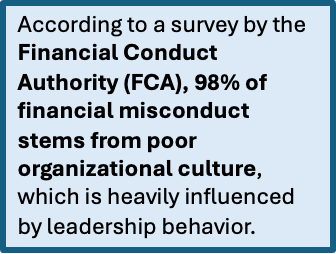
Surveys show that despite widespread recognition of the need for digital strategies, nearly half of financial institutions lack a clear roadmap for technological transformation. However, it is not only technology that must evolve; leadership must evolve with it. Behavioral leadership programs are integral to fostering a forward-thinking mindset in leaders, helping them manage through the complexities of digital transformation while maintaining strong interpersonal relationships within their teams.
Research indicates that institutions with robust leadership development initiatives are more likely to outperform their peers. Behavioral leadership programs focus on essential skills such as emotional intelligence, effective communication, conflict resolution, and decision-making. These programs empower leaders to not only understand the technical aspects of their operations but also to navigate the human side of business, fostering a collaborative and inclusive work environment that drives both employee engagement and customer satisfaction.
As the banking and financial services industry continues to face increased competition and customer expectations, institutions that prioritize behavioral leadership will find themselves better positioned to innovate and thrive.
Behavioral leadership programs are specifically designed to help leaders in this sector develop the emotional and psychological tools necessary to guide their organizations through transformation, improve customer experiences, and, ultimately, achieve long-term success in an evolving market.
By embedding behavioral leadership into the core of their organizational strategy, financial institutions can foster a culture that is not only adaptable to change but also proactive in anticipating the needs of both employees and customers. This approach will enable them to stay competitive and build resilient teams capable of navigating the challenges of the modern financial services landscape.
Professional Services
As globalization accelerated through the 1980s and 1990s, the consultancy industry evolved, expanding beyond management and strategy to areas like IT systems integration, human resources, and financial restructuring. Firms such as Accenture, Capgemini, and Deloitte diversified their service offerings to meet the complex needs of global businesses navigating the digital revolution and international competition. By the end of the 20th century, consulting had established itself as a critical industry, providing expertise that spanned multiple sectors and disciplines.
Current Position of the Consultancy Industry
Today, the consultancy industry is a multibillion-dollar sector, playing a vital role across all levels of business, government, and non-profits. Modern consultancy has expanded beyond traditional areas of strategy and operations, encompassing a broad array of specialties, including digital transformation, sustainability, cybersecurity, and behavioral leadership. Global firms such as McKinsey, BCG, and PwC, along with a surge of boutique and niche firms, dominate the market, serving both large multinational corporations and smaller enterprises looking to adapt to rapidly changing environments.
One key trend in the current consulting landscape is the rise of digital and technology-driven consulting. As organizations face the challenges of digital disruption, consultants are increasingly being called upon to lead transformations related to artificial intelligence (AI), big data, cloud computing, and the Internet of Things (IoT). This shift has also triggered an increasing demand for specialized knowledge in data analytics, cybersecurity, and innovation management. Companies not only seek guidance on how to leverage new technologies but also on how to manage the behavioral and cultural changes required to adopt them successfully.
Furthermore, there is a growing recognition of the importance of behavioral leadership in consulting. Clients are increasingly aware that the success of any strategy depends on the ability to manage people effectively and to foster cultures that support innovation and adaptability. Consultants now serve as change agents, helping leaders cultivate emotional intelligence, resilience, and engagement within their organizations. This shift highlights the importance of leadership behaviors in managing transformations, ensuring that teams remain aligned, motivated, and capable of executing new strategies in dynamic and competitive markets.
Future Outlook of the Consultancy Industry
The future of the consultancy industry is poised for significant change, shaped by technological advancements, societal expectations, and the evolving needs of businesses in a globalized world. The consultancy model will increasingly focus on providing not just technical expertise, but also the behavioral leadership necessary to navigate the complexities of a digitally-driven and interconnected economy.
One of the major trends expected to dominate the future is the integration of artificial intelligence (AI) and automation into consultancy services. As AI becomes more advanced, consultants will need to develop new methods for interpreting large datasets and providing actionable insights. Machine learning will allow firms to offer predictive analytics, helping clients anticipate market trends and make data-driven decisions. However, while technology will play a pivotal role, the need for human-centric consulting, which addresses leadership, organizational culture, and workforce development, will remain crucial.
Additionally, there will be a growing emphasis on sustainability and ethical leadership. As environmental concerns become more pressing, businesses will seek consultancy services to help them transition to more sustainable practices, comply with regulatory standards, and meet the demands of socially conscious consumers. Consultants who can guide companies through these transitions while balancing profit with purpose will be highly sought after. Behavioral leadership will again be essential, as successful sustainability initiatives require leaders who can inspire buy-in and change behaviors across entire organizations.
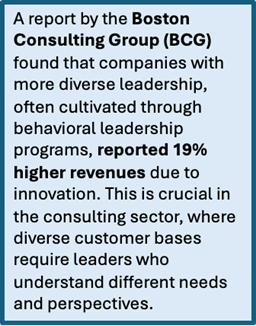
Lastly, the consultancy industry is expected to see greater democratization, with an increase in freelance and independent consultants leveraging technology to offer highly specialized, on-demand services. This shift toward gig-based consulting models will challenge traditional firms but also offer new opportunities for those who can adapt to a more flexible, client-driven landscape. The future of consulting will demand not only technical acumen but also an ability to lead diverse teams, navigate cross-cultural challenges, and drive organizational change through behavioral leadership.
The consultancy industry has evolved from its early focus on operational efficiency to become an indispensable partner in shaping strategy, culture, and technology adoption across industries. Behavioral leadership is now central to the industry’s value proposition, enabling consultants to drive meaningful, sustainable change in an increasingly complex world.
Locations
This service is primarily available within the following locations:
London, England
London is one of the foremost financial and commercial hubs in the world, competing with cities like New York, Singapore, and Hong Kong. It is home to the headquarters of numerous multinational corporations and banks, including Barclays, HSBC, and Standard Chartered. The City of London and Canary Wharf are the heart of the UK’s financial services sector, playing pivotal roles in global finance, including foreign exchange trading, asset management, and insurance.
In addition to finance, London is a leader in legal, consulting, and creative services. The technology sector has also gained traction, with the emergence of the “Tech City” area in East London, hosting startups and major tech firms such as Google, Facebook, and Amazon. The city’s ability to attract talent from around the world is a testament to its cosmopolitan nature, aided by world-class universities such as Imperial College London, University College London, and the London School of Economics.
The city’s diverse real estate market, from luxury residential neighborhoods to bustling commercial districts, reflects its strong economic fundamentals. Despite uncertainties brought on by Brexit, London has maintained its relevance by attracting foreign direct investment, demonstrating flexibility in global markets, and adapting to evolving geopolitical conditions.
Future Outlook for London
Looking forward, London faces both significant opportunities and challenges. The impact of Brexit continues to unfold, with the city needing to redefine its relationship with Europe and attract investment from other regions. However, the UK government’s focus on establishing post-Brexit trade agreements with countries such as the US, India, and Japan could unlock new opportunities. As businesses and financial institutions adapt, London’s regulatory environment is likely to become more flexible and innovation-driven, potentially reinforcing its position as a global hub.
Sustainability and climate change are also critical areas of focus for London’s future. The city has set ambitious targets for becoming a leader in green finance, with the government and private sector investing heavily in renewable energy, electric vehicles, and sustainable infrastructure. Initiatives like the London Climate Action Week and a push for the greening of financial services indicate the city’s commitment to sustainability, which could create new industries and jobs in the coming decades.
The technology sector is another promising area, with London already a leader in fintech. The rise of artificial intelligence, blockchain, and quantum computing provides the city with an opportunity to expand its tech footprint. Furthermore, London’s cultural diversity and reputation as a leading creative hub will continue to make it a desirable destination for global talent, strengthening sectors like media, fashion, and design.
While there are challenges ahead, London’s adaptability, historical strength in finance, and emerging roles in technology and sustainability position it well for future growth. The city is poised to continue evolving as a multifaceted, global commercial hub.
Plymouth, England
Plymouth stands as a vibrant city with a mixed economy that blends its rich maritime heritage with contemporary industries. The city’s waterfront remains a focal point, but its economic landscape has broadened significantly to include sectors such as advanced manufacturing, defense, education, healthcare, and tourism. The Devonport Dockyard continues to be a major employer, with a focus on naval shipbuilding and maintenance, supporting the UK’s defense sector. Plymouth’s role in supporting the Royal Navy also extends to modern technological development, particularly in marine engineering and defense innovation.
Higher education institutions, including the University of Plymouth, play a crucial role in driving local economic growth, producing skilled graduates in marine science, environmental studies, engineering, and healthcare. This academic presence fosters collaboration with local businesses and research initiatives, creating a symbiotic relationship between education and industry. The city also hosts the Plymouth Science Park, which supports startups and tech companies in sectors such as digital health and marine research, further diversifying its economy.
Retail and tourism are essential contributors to Plymouth’s current economy. The city attracts visitors to its historic sites, such as the Hoe and the Mayflower Steps, while hosting modern attractions like the National Marine Aquarium. Plymouth has developed a dynamic retail environment, with the Drake Circus Shopping Centre serving as a significant commercial hub. Additionally, local government initiatives focus on improving infrastructure, such as the redevelopment of the Millbay area, which aims to bolster the city’s appeal as a destination for tourists and business investment alike.
Future Outlook for Plymouth
Plymouth’s future outlook is shaped by strategic initiatives aimed at building on its strengths in marine and defense industries while fostering diversification into new and emerging sectors. The city’s vision for the future is outlined in its “Resurgam” economic recovery plan, which aims to rebuild the local economy following the COVID-19 pandemic by prioritizing digital innovation, sustainability, and infrastructure development. This plan also emphasizes a green recovery, with Plymouth poised to become a leading city in maritime decarbonization and renewable energy. The city’s coastal location makes it an ideal site for investments in offshore wind and wave energy, positioning Plymouth as a key player in the UK’s transition to a low-carbon economy.
Moreover, the growing focus on research and development in marine autonomy, cyber defense, and advanced manufacturing indicates a future where Plymouth can leverage its defense and technological heritage in new ways. The continued collaboration between academic institutions and businesses is expected to drive further innovation in areas such as digital health, environmental sustainability, and smart city technologies. The Plymouth and South Devon Freeport initiative, which will create tax and customs benefits for businesses, is another future growth driver, attracting new investment, particularly in manufacturing and logistics.
Challenges remain, such as the need to address skills gaps and improve transport links to better connect Plymouth with the rest of the UK. However, with targeted efforts to modernize its infrastructure, improve digital connectivity, and foster a sustainable economy, Plymouth is well-positioned to build a more resilient and diverse economic future. The city’s ongoing transformation into a center of innovation and its commitment to sustainability are likely to secure its place as a dynamic hub in the southwest, both commercially and culturally.
Bristol, England
Bristol is one of the UK’s most dynamic cities, known for its innovation, creativity, and entrepreneurial spirit. The city is an economic powerhouse in the southwest of England, home to over 46,000 businesses. Its economy has shifted from manufacturing to services, with finance, legal services, and the digital tech sector forming key pillars of the city’s economy. The rise of tech startups, in particular, has positioned Bristol as a leading tech hub, rivaling London, Manchester, and Cambridge. Companies involved in advanced engineering, robotics, and software development are drawn to Bristol due to its strong talent pool and connections to top universities like the University of Bristol and the University of the West of England.
In addition to tech, the creative industries are thriving in Bristol. The city is known for its media production companies, including the internationally recognized Aardman Animations, creators of “Wallace and Gromit.” Bristol is also a UNESCO City of Film, underlining its importance in the media landscape. Meanwhile, the aerospace sector continues to be a crucial part of Bristol’s identity, with companies like Airbus and Rolls-Royce still maintaining a significant presence.
In terms of infrastructure, Bristol has developed a vibrant cultural and social scene, making it a magnet for young professionals. Major investments in sustainable transport, including cycling lanes and public transportation, have enhanced the city’s livability. Bristol’s focus on green initiatives, such as its status as the UK’s first European Green Capital in 2015, demonstrates its commitment to sustainability and environmental innovation.
Future Outlook of Bristol
Looking forward, Bristol is positioned for continued growth and diversification, driven by its commitment to innovation and sustainability. The city has set ambitious targets to become carbon neutral by 2030, which will require significant investment in green infrastructure, energy efficiency, and sustainable transportation solutions. With these initiatives, Bristol could serve as a model for other cities aiming to reduce their environmental impact while maintaining economic growth.
Bristol’s tech sector is expected to continue expanding, with particular opportunities in fintech, artificial intelligence, and clean energy technologies. The city’s universities are working closely with industry leaders to cultivate research and development (R&D) initiatives, fostering innovation and creating a steady pipeline of talent for the tech and engineering sectors. Furthermore, Bristol’s ongoing work to attract investment in high-value sectors such as aerospace, defense, and advanced manufacturing suggests a future grounded in both high-tech and traditional industries.
Commercially, Bristol’s real estate market is expected to see steady demand, driven by both residential and commercial development. The ongoing regeneration of key areas, including the transformation of Bristol Temple Quarter, will enhance the city’s appeal to businesses and investors. Bristol Temple Quarter is set to become a major business district, further strengthening the city’s role as a commercial hub.
While challenges remain, particularly in addressing social inequality and housing affordability, Bristol’s resilience and adaptability suggest it will remain a leading UK city for innovation, investment, and sustainability. Its blend of historical significance and forward-looking ambition sets it apart as a city primed for long-term success on the national and international stage.
Dublin, Ireland
Dublin is the economic powerhouse of Ireland, known for its thriving technology sector and robust financial services industry. The city’s modern commercial landscape has been shaped largely by Ireland’s decision to join the European Economic Community in 1973, and later the European Union, which opened up new trade opportunities and attracted foreign direct investment (FDI). Over the last few decades, Dublin has transformed into a global hub for multinational corporations, particularly in the tech sector. Major companies like Google, Facebook, Microsoft, and LinkedIn have established their European headquarters in the city, lured by Ireland’s favorable corporate tax regime and the city’s highly educated workforce.
Dublin is also home to a dynamic financial services industry. The International Financial Services Centre (IFSC), established in the late 1980s, has become a focal point for investment banks, asset management companies, and fintech firms. This has strengthened the city’s reputation as a European financial hub, especially in the wake of Brexit, which saw many financial institutions relocate some of their operations from London to Dublin to maintain access to the EU market.
Tourism remains a key contributor to the economy, with Dublin’s rich history, culture, and reputation for hospitality drawing millions of visitors annually. Additionally, the city’s role as a national capital ensures that it continues to be a center for government, education, and cultural institutions.
Future Outlook of Dublin
Looking ahead, Dublin is poised to continue its upward trajectory, though it faces challenges that need to be managed carefully. The city is expected to remain a key hub for the technology sector, particularly as emerging industries like artificial intelligence, cybersecurity, and clean tech gain momentum. Dublin’s strong foundation as a tech hub, along with government support for innovation and R&D, ensures that it will continue to attract high levels of FDI in these sectors. The push toward digital transformation across Europe presents a further growth opportunity for the city.
However, Dublin also faces significant challenges related to infrastructure and housing. The rapid growth of the city’s population, driven by both domestic growth and inward migration, has led to a strain on housing supply, driving up property prices and rents. Addressing this issue is critical for Dublin to maintain its attractiveness to international companies and talent. Investments in infrastructure, particularly in public transport and housing, will be essential to support the city’s continued expansion.
Additionally, as Dublin navigates the broader European economic environment post-Brexit, it will need to strike a balance between leveraging its EU membership and maintaining good trade relations with the UK. The future of financial services in Dublin may also be shaped by evolving regulatory environments and competition from other European financial centers.
Dublin’s future is marked by significant potential for growth, particularly in tech and financial services. Strategic investments in infrastructure, housing, and talent development will be essential for sustaining this momentum and ensuring the city continues to thrive on the global stage.
Washington, D.C.
Washington, D.C., is a bustling metropolis with a dynamic commercial landscape that balances both its political and economic roles. While government agencies still represent a large portion of the city’s economy, the past few decades have seen diversification into sectors like education, technology, healthcare, and tourism.
The presence of renowned institutions such as Georgetown University, George Washington University, and Howard University has helped establish D.C. as a hub for higher education and research, while its robust healthcare system, anchored by leading hospitals and medical research facilities, contributes to a growing health services industry. Technology and innovation are emerging sectors, particularly in cybersecurity, where federal contracts have attracted a host of private sector firms. In recent years, D.C. has become home to a growing number of tech startups, benefiting from the city’s educated workforce and proximity to federal agencies.
Tourism also plays a significant role, with millions of visitors each year drawn to the city’s historical monuments, museums, and political landmarks. Washington, D.C. is one of the most visited cities in the U.S., bolstered by its free-access Smithsonian museums and iconic attractions. The hospitality industry, including hotels, restaurants, and entertainment venues, continues to thrive.
Additionally, Washington’s status as an international diplomatic center attracts foreign investment and embassies, making it a global city. It is home to the World Bank, International Monetary Fund (IMF), and numerous non-governmental organizations (NGOs), giving the city significant international influence. D.C. also boasts a thriving real estate market, especially in high-end office and residential properties, driven by demand from professionals in the government, legal, and consulting sectors.
Future Outlook of Washington, D.C.
Washington, D.C.’s commercial future is set to be shaped by ongoing diversification efforts and strategic urban planning. While federal government operations will always play a critical role in the city’s economy, emerging industries such as technology, renewable energy, and life sciences are poised to grow. The local government has made significant investments in fostering entrepreneurship and innovation, with initiatives like the Inclusive Innovation Fund and investments in smart city infrastructure aimed at attracting more startups and tech firms.
The city’s workforce will continue to evolve as higher education institutions partner with private and public entities to offer cutting-edge research and training. This positioning aligns with broader trends in green technology, cybersecurity, and data analytics, areas in which D.C. is becoming a leader. Furthermore, D.C.’s efforts to build sustainable infrastructure and reduce carbon emissions signal its readiness to adapt to environmental challenges and capitalize on the growing green economy.
Transportation and infrastructure development remain key priorities, with projects such as the expansion of the Washington Metro system and improvements to regional airports enhancing connectivity and commerce. As the city grows, urban regeneration efforts in neighborhoods like Anacostia and NoMa will boost commercial real estate opportunities, while affordable housing and equitable development initiatives aim to address long-standing social inequalities.
The future of D.C. is also tied to its international relations and the role it plays in global governance. As a center for international diplomacy, the city is well-positioned to benefit from the continued influx of global investment and partnerships. However, future economic resilience will depend on its ability to continue diversifying away from its reliance on federal employment and contracts, as well as addressing socio-economic disparities within its population. With strong economic fundamentals, ongoing investment in infrastructure, and growing sectors outside of government, Washington, D.C. is poised for continued growth and influence in both national and international commerce.
Program Benefits
Management
- Consistent decision-making
- Strategic thinking
- Effective communication
- Vision creation
- Behavior modeling
- Conflict resolution
- Time management
- Performance improvement
- Building trust
- Talent development
Human Resources
- Collaboration enhancement
- Trust building
- Feedback improvement
- Accountability fostering
- Team synergy
- Relationship building
- Inclusive leadership
- Psychological safety
- Succession planning
- Symbolic leadership
Globalization
- Change leadership
- Stakeholder management
- Innovation encouragement
- Results-driven execution
- Productivity optimization
- Goal alignment
- Effective delegation
- Continuous improvement
- Performance tracking
- Reward structuring
Testimonials

Aetna
“Our leadership team was struggling with communication breakdowns and inconsistent decision-making. The behavioral leadership program completely transformed our approach. By focusing on emotional intelligence and effective communication strategies, we were able to foster a more cohesive team dynamic. Decision-making became more streamlined, and we saw an immediate improvement in morale and productivity.”
Microsoft
“Our team was dealing with high employee burnout and turnover, and we knew something had to change in the way we led. The behavioral leadership program gave us the tools to better understand what drives and stresses our team members. As a result, we’ve implemented changes that have reduced burnout and made our workplace much more engaging and supportive.”
William & Mary
“Ms. Berube joined as a guest lecturer to MBA students at William & Mary’s Raymond A. Mason School of Business and was outstanding! She provided incredible insight and valuable tools that clearly displayed her knowledge and expertise in the field of behavioral leadership. Her deep understanding of leadership principles was evident, as she highlighted strategies for self-awareness, emotional intelligence, and adaptive leadership styles. Ms. Berube is able to effectively display professionalism while also being relatable to her audience. There is no doubt that working with Ms. Berube, especially in the context of a behavioral leadership program, would set anyone on a course for lasting success!”
Cahaba Medical Care
“Ms. Berube’s deep understanding of human behavior and leadership dynamics has been transformative for our team. Through her behavioral leadership program, we’ve learned how to drive performance by fostering emotional intelligence, effective communication, and accountability. Ms. Berube’s coaching not only enhances leadership skills but also empowers individuals to lead with empathy and authenticity, resulting in stronger, more cohesive teams.”

Department of Health & Human Services (USA)
“Ms. Berube is a compassionate, thoughtful, and empowering coach. Her expertise in behavioral leadership adds an invaluable layer to her coaching, helping individuals understand how to lead through emotional intelligence, communication, and self-awareness. She has a true gift for connecting with people and made a tremendous impact on my professional development. I would wholeheartedly recommend her to anyone interested in improving their leadership skills, transforming their life, and making a difference in the world.”
More detailed achievements, references and testimonials are confidentially available to clients upon request.
Client Telephone Conference (CTC)
If you have any questions or if you would like to arrange a Client Telephone Conference (CTC) to discuss this particular Unique Consulting Service Proposition (UCSP) in more detail, please CLICK HERE.
















